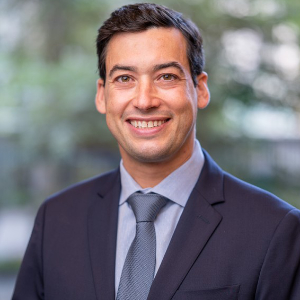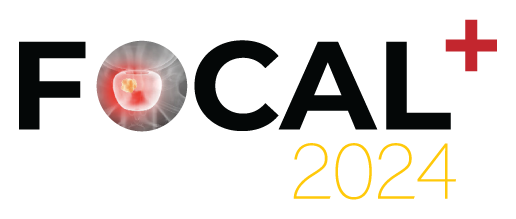2024 FACULTY

Jonathan Fainberg, MD, MPH
I am a urologic surgeon who specializes in the diagnosis, surveillance, and treatment of localized prostate cancer.
I am particularly interested in image-guided interventions to diagnose and treat prostate cancer and gained expertise on their application in this disease during my fellowship training. As imaging of the prostate with MRI and PET scans has improved, so has our ability to use these methods to diagnose and treat prostate cancer. The better the quality of the imaging, the more confident urologic surgeons like me can be in recommending specific treatments to our patients.
Partial gland ablation (also called focal therapy) is an evolving image-guided treatment option, and it is one of my specialties. This type of therapy is available to a subset of men with cancer in one part of the prostate. We use an MRI to view and treat the part of the prostate gland affected by cancer without harming the surrounding, non-cancerous areas. Partial gland ablation allows us to control the cancer while minimizing the side effects associated with radical treatment. When a patient is interested in partial gland ablation, I typically perform a “confirmatory biopsy” to validate the location and the pathology of the tumor prior to therapy. I do this even if you have had a biopsy done outside of Memorial Sloan Kettering Cancer Center (MSK).
I am also interested in active surveillance for men with low- or favorable intermediate-risk prostate cancer. This type of prostate cancer is unlikely to spread or affect your life expectancy and quality of life. In these cases, the best approach is active surveillance — keeping a close eye on the cancer to monitor it for changes. We have used active surveillance for years at MSK, and with our robust surveillance protocols, you can rest assured that low or intermediate-risk prostate cancer will not be a problem for you.
Prostate biopsy is one of my areas of expertise. Since a prostate biopsy can be uncomfortable, I have trained in several techniques to improve the biopsy process. I have extensive experience in performing transrectal and transperineal prostate biopsies, and I offer a variety of anesthesia options to make patients feel more comfortable. I am a firm believer that it does not need to be a distressing experience for my patients.
When I am not working, I enjoy spending time with my wife, who is an OBGYN (obstetrics and gynecology), and daughters. I am an active guy who likes gardening, cooking, playing sports, and watching football (go Pats).
